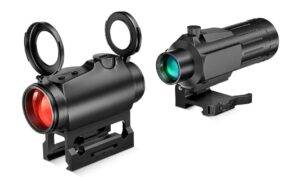

Camping is arguably one of the most popular forms of recreation that let us reap the full benefits of the great outdoors in the company of our friends or family. No doubt, camping with an RV is a lot of fun, of course, if your trip is well-thought-out and you have everything for a seamless experience. An RV generator is just one of those things that can either make your weekend (and even holidays) or ruin it completely.
If you are one of those campers who do not want to depend on the electrical capabilities of the campsite, which often leave much to be desired, especially during peak season, then make sure to choose the right generator for your RV, and here is how.
Decide On The Power
The first thing you have to determine is the amount of power your future device has to generate. RV generators come in three ranges: 2000-3000 Watt, 3000-5000 Watt, and 5000-10000 Watt.
Let’s start with the first option, which is great for driving smaller appliances such as mini-fridges, microwaves, small TVs, laptops, and hair dryers at the same time. The best models will be even able to produce enough power for a use of a smaller air conditioner, which is lower than 13,500 BTUs. These generators are relatively small, pretty quiet, and easy to handle.
However, if you are plotting to use a washing machine, a solid A/C system, or a compressor refrigerator in addition to the already mentioned electronic devices, you have to look for a 3000-5000 Watt range. According to experts from generatorgrid.com/rv/, such generators have no problem powering up your camper or RV’s A/C system, kitchen appliances, and other electrical needs simultaneously. Look for models that are equipped with wheels and a handle for easy transportations or otherwise, you will need to lift it, and the majority of products in this category are far from being lightweight.
Finally, the heavy weighers. With a 5000-10000 Watt range, many of them are able to power a larger RV or even several vehicles. When you have one of those tech wonders, there is no need to lower your sights – rest assured, you will be able to power a host of large appliances with ease, and for a longer period of time.
Conventional or Inverter?
Despite what many people have this dilemma, the answer is very straightforward: inverter, only. Conventional generators are too noisy, hence hardly a suitable option for crowded campsites. More than that, even if you will be allowed to a campsite, as a “proud” owner of a conventional device, you will likely be the first to switch it off, pack all the stuff, and just drive back home.
So, what can inverter generators do for you? To start with, they can charge your RV’s batteries and successfully run high wattage appliances such as your microwave and A/C unit that your batteries cannot provide power to – in short, all the things we have already described. By the way, if you wonder what is acceptable in terms of noise, let’s say the quietest 2000- watt generators start at 48 dB. Needless to say, the more powerful the machine, the more noise it produces. The general recommendation when shopping for a portable generator for camping is to look for models that are rated under 60-65 dB.
Another reason to use an inverter generator is its ability to protect your costly and sensitive electronic devices from the potential harm triggered by uneven electric current. They do come with a somewhat higher price in comparison to conventional counterparts but when you think of how much you paid for your laptop or flat-screen TV, the decision is obvious.
Fuel Type
If you have already browsed the offering, you know that generators can run on propane, diesel, or be battery-powered. There are also dual-fuel models that let you switch between gasoline and propane. The battery-powered option is pretty convenient as batteries can be recharged through solar energy, plus these generators run almost silently. The downside of battery-powered generators is that they are usually more expensive.
Warranty
The majority of renowned brands give either 2- or 3-year limited warranty with the possibility of an extended warranty to further protect your investment.
Having a powerful yet quiet generator can take your camping experience to the next level literally. Fortunately, the market has no shortage of top-notch models produced by the world’s leading brands. When choosing a generator for your RV, make sure it can cater to all your needs while you get the best value for your money.
Reference: https://www.generator-review.com/rv-generator/








